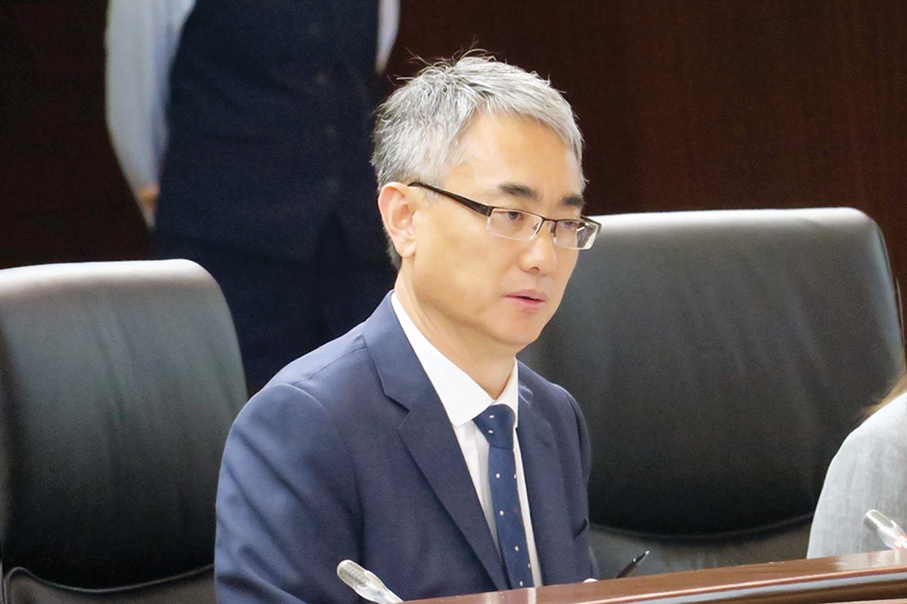The Legislative Assembly (AL) yesterday passed a government-initiated bill amending the Chief Executive Election Law, according to which the Committee for Safeguarding National Security of the Macau Special Administrative Region (MSAR) will be tasked with assessing whether chief executive election candidates uphold the MSAR Basic Law and bear allegiance to the People’s Republic of China (PRC) and the MSAR.
The amendment bill’s outline was passed during a plenary session of the legislature in October. The legislature’s 2nd Standing Committee held several meetings to review the bill.
Secretary for Administration and Justice André Cheong Weng Chon attended yesterday’s plenary session when the bill was voted on article-by-article in its second and final reading.
The amended Chief Executive Election Law will take effect on January 1 next year.
The MSAR chief executive election is held every five years. The head of the MSAR is elected by a 400-member committee. The next chief executive election will be held next year.
While the current version of the Chief Executive Election Law stipulates that a chief executive election candidate must uphold the MSAR Basic Law and bear allegiance to the PRC and the MSAR, it does not require the candidate to sign a declaration confirming his or her agreement.
The law’s amended version will require chief executive election candidates to sign a declaration confirming that they uphold the MSAR Basic Law and bear allegiance to the PRC and the MSAR.
According to the amended version, when the Chief Executive Electoral Affairs Commission (CAECE) is assessing chief executive election candidates’ qualifications, it will be required to request the Committee for Safeguarding National Security of the MSAR to assess whether the candidates uphold the MSAR Basic Law and bear allegiance to the PRC and the MSAR.
If the CAECE decides to disqualify a chief executive election candidate after the Committee for Safeguarding National Security of the MSAR has concluded that he or she does not uphold the MSAR Basic Law or has been disloyal to the PRC or the MSAR, the respective candidate cannot file an appeal to the CAECE nor the courts against the decision, according to the amended Chief Executive Election Law.
In such circumstances, according to the law’s amended version, he or she will also be ineligible to stand as a candidate for the next five years.
Moreover, the amended law will criminalise those who publicly incite others to cast blank or invalid votes, or to abstain from voting, in the chief executive election. The offenders will face a prison term of up to three years.
During yesterday’s plenary session, only one lawmaker debated the amendment bill, when Ron Lam U Tou again voiced his disagreement with the provision (Paragraph 3 of Article 42) that a chief executive election candidate cannot file an appeal to the CAECE nor the courts if the Committee for Safeguarding National Security of the MSAR concludes that he or she does not uphold the MSAR Basic Law or has been disloyal to the PRC or the MSAR.
After yesterday’s passage of the amendment bill, a number of lawmakers voiced their support for the Chief Executive Election Law having been amended.
The local government has underlined that amendments to the Chief Executive Election Law aim to ensure the full implementation of the “patriots governing Macau” principle.

Secretary for Administration and Justice André Cheong Weng Chon speaks during yesterday’s plenary session in the Legislative Assembly’s (AL) hemicycle.
– Photo courtesy of TDM






